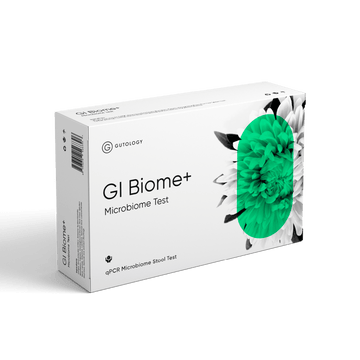Could the root cause of your bloating, heartburn, or ulcers be something microscopic hiding in your stomach lining? Meet Helicobacter pylori (H. pylori) - a spiral-shaped bacterium infecting over half of the world's population, often without noticeable symptoms.
What Is H. Pylori?
Discovered in 1982 by Australian scientists Dr. Barry Marshall and Dr. Robin Warren (earning them a Nobel Prize!), H. pylori is a gram-negative bacterium that colonises the stomach lining. It’s now recognised as the primary cause of peptic ulcers and is linked to chronic gastritis, stomach cancer, and even some autoimmune conditions.1
Who’s Susceptible To H. Pylori Infection?
While anyone can be infected, several factors increase susceptibility:
- Living in densely populated or developing countries: Poor sanitation and contaminated water increase transmission risk.
- Close contact with infected individuals, especially family members.
- Older adults, as cumulative exposure increases over time.
- Frequent NSAID use, which weakens the stomach lining.
- Weakened immune system or gut dysbiosis.2,3
Symptoms: When H. Pylori Strikes
Pylori infections often go unnoticed, but when symptoms do appear, they may include:
- Persistent bloating
- Burning stomach pain (especially when fasting)
- Nausea or vomiting
- Frequent belching
- Loss of appetite
- Unexplained weight loss
- In severe cases, ulcers or gastrointestinal bleeding4
Conventional Treatments: The Antibiotic Standard
Diagnosis typically involves a breath test, stool antigen test, blood test, or endoscopy. The standard medical approach, known as triple therapy, combines antibiotics with Proton Pump Inhibitors (PPIs) to reduce stomach acid. However, rising antibiotic resistance and the potential for additional side effects have made effective treatment increasingly difficult.5
Holistic & Complementary Approaches: Supporting Your Gut Naturally
Beyond antibiotics, research highlights several holistic strategies that may support H. pylori management, gut healing, and overall digestive health:
1. Diet: Feeding The Gut, Starving The Bacteria
- Sulforaphane-rich foods (broccoli sprouts) have shown potential to inhibit H. pylori growth.
- Polyphenols in green tea and berries may reduce bacterial load.
- Prebiotic fibres (onions, garlic, leeks) feed beneficial bacteria and support gut balance.
- Limit refined sugar, alcohol, and processed foods, which can aggravate symptoms and fuel harmful bacteria.6,7
2. Probiotics: Reinforce The Gut Army
Specific probiotic strains like Lactobacillus reuteri, Lactobacillus rhamnosus GG, and Saccharomyces boulardii have been shown to reduce H. pylori load, ease antibiotic side effects, and improve eradication rates.8
3. Mastic Gum: The Ancient Remedy With Modern Backing
Mastic gum, a resin from the mastic tree, has demonstrated antimicrobial properties against H. pylori in previous studies.9
4. Deglycyrrhizinated Licorice (DGL): Soothe & Protect
DGL has been shown to support the stomach lining and may help reduce irritation without the blood pressure risks associated with standard liquorice.10
5. Stress Management: Heal The Gut-Brain Axis
Chronic stress increases stomach acid secretion and weakens the mucosal barrier, exacerbating symptoms. Techniques like meditation, deep breathing, gentle exercise, and good sleep hygiene can support recovery.11
The Takeaway: Take Control of Your Gut Health
While H. pylori is common, it doesn't have to control your digestive destiny. Whether through conventional antibiotics, holistic strategies, or a blend of both, understanding your options can empower you to make the best choices for your health.
If you're experiencing persistent digestive symptoms, consult a healthcare professional. With the right approach, you can heal and support a happy, healthy gut.
Tune in to Julia Davies' insights in response to a real-life H. pylori story.







